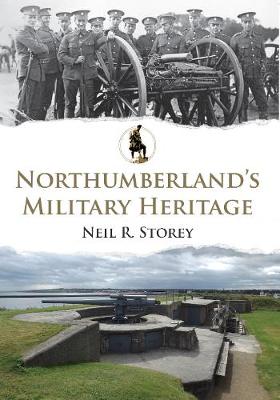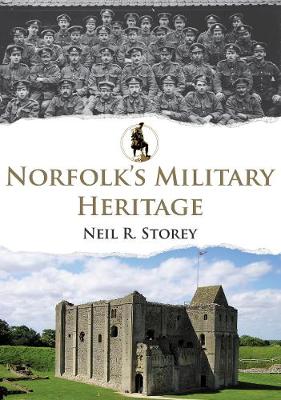Military Heritage
2 total works
The military heritage of Northumberland is without doubt one of the richest in all the British Isles. By nature of it being England's most northern county, its borders have seen many bloody clashes and battles since the earliest times. Hadrian's Wall stretches along the south of the county and is dotted with forts, garrisons and fortified settlements along its length. The first Viking raid was carried out upon Lindisfarne in 793. There were clashes with the Scots for centuries and from the thirteenth century and for 400 years afterwards there were border raids by reivers. The Battle of Newburn in 1640 was one of the flashpoints that led to the English Civil War, and many a noble Northumberland family was ruined in the Jacobite Rebellion of 1745.
It is hardly surprising that within the boundaries of the county there can be found more castles than anywhere else in Britain and, as a breed of fighting men, the steel of the Northumbrians is like no other. The men of the North were the backbone of the British Army; a number of regiments have recruited here, including the Coldstream Guards, King's Own Scottish Borderers and, of course, our very own Northumberland Fusiliers, 'The Fighting Fifth'. They all served with distinction wherever they fought - from the Peninsular War to South Africa, through two world wars, and beyond.
Award-winning military historian Neil R. Storey knows and loves Northumberland and this book will interest anyone keen to know more about its remarkable military history.
It is hardly surprising that within the boundaries of the county there can be found more castles than anywhere else in Britain and, as a breed of fighting men, the steel of the Northumbrians is like no other. The men of the North were the backbone of the British Army; a number of regiments have recruited here, including the Coldstream Guards, King's Own Scottish Borderers and, of course, our very own Northumberland Fusiliers, 'The Fighting Fifth'. They all served with distinction wherever they fought - from the Peninsular War to South Africa, through two world wars, and beyond.
Award-winning military historian Neil R. Storey knows and loves Northumberland and this book will interest anyone keen to know more about its remarkable military history.
Norfolk's military heritage dates back to the earliest times, from Iron Age forts, Iceni strongholds and Boudica's rebellion against Roman occupation to its front-line role with coastal defences and numerous airbases during the Second World War. The Romans left their mark with fortifications, garrisons and shore forts. The county was shaped by Anglo-Saxon and Viking invasions and the Normans, whose castles still stand dominant in the county.
Norfolk was the scene of uprisings and rebellions, including the Peasants' Revolt, Kett's Rebellion and Civil War conflicts. The men of the county led and filled the ranks of the local volunteers, militias and yeomanry during the Napoleonic Wars and was famed for its great maritime commander of the day - Admiral Lord Nelson. The county played a vital part in both world wars, not least suffering direct attacks by German battleships, Zeppelin air raids during the First World War and becoming a target during the Baedeker Blitz in 1942. The Royal Norfolk Regiment has a proud history, serving with distinction wherever they fought - from the Peninsular War to South Africa, through two world wars and beyond.
Award-winning historian Neil R. Storey is a born-and-bred Norfolk man. He has published on military and social history themes for thirty years and knows and loves his county well. Norfolk's Military Heritage will interest anyone keen to know more about the county's remarkable military history.
Norfolk was the scene of uprisings and rebellions, including the Peasants' Revolt, Kett's Rebellion and Civil War conflicts. The men of the county led and filled the ranks of the local volunteers, militias and yeomanry during the Napoleonic Wars and was famed for its great maritime commander of the day - Admiral Lord Nelson. The county played a vital part in both world wars, not least suffering direct attacks by German battleships, Zeppelin air raids during the First World War and becoming a target during the Baedeker Blitz in 1942. The Royal Norfolk Regiment has a proud history, serving with distinction wherever they fought - from the Peninsular War to South Africa, through two world wars and beyond.
Award-winning historian Neil R. Storey is a born-and-bred Norfolk man. He has published on military and social history themes for thirty years and knows and loves his county well. Norfolk's Military Heritage will interest anyone keen to know more about the county's remarkable military history.

